
WHO puts co-packaged ORS and zinc in the starting line up to defeat diarrheal disease
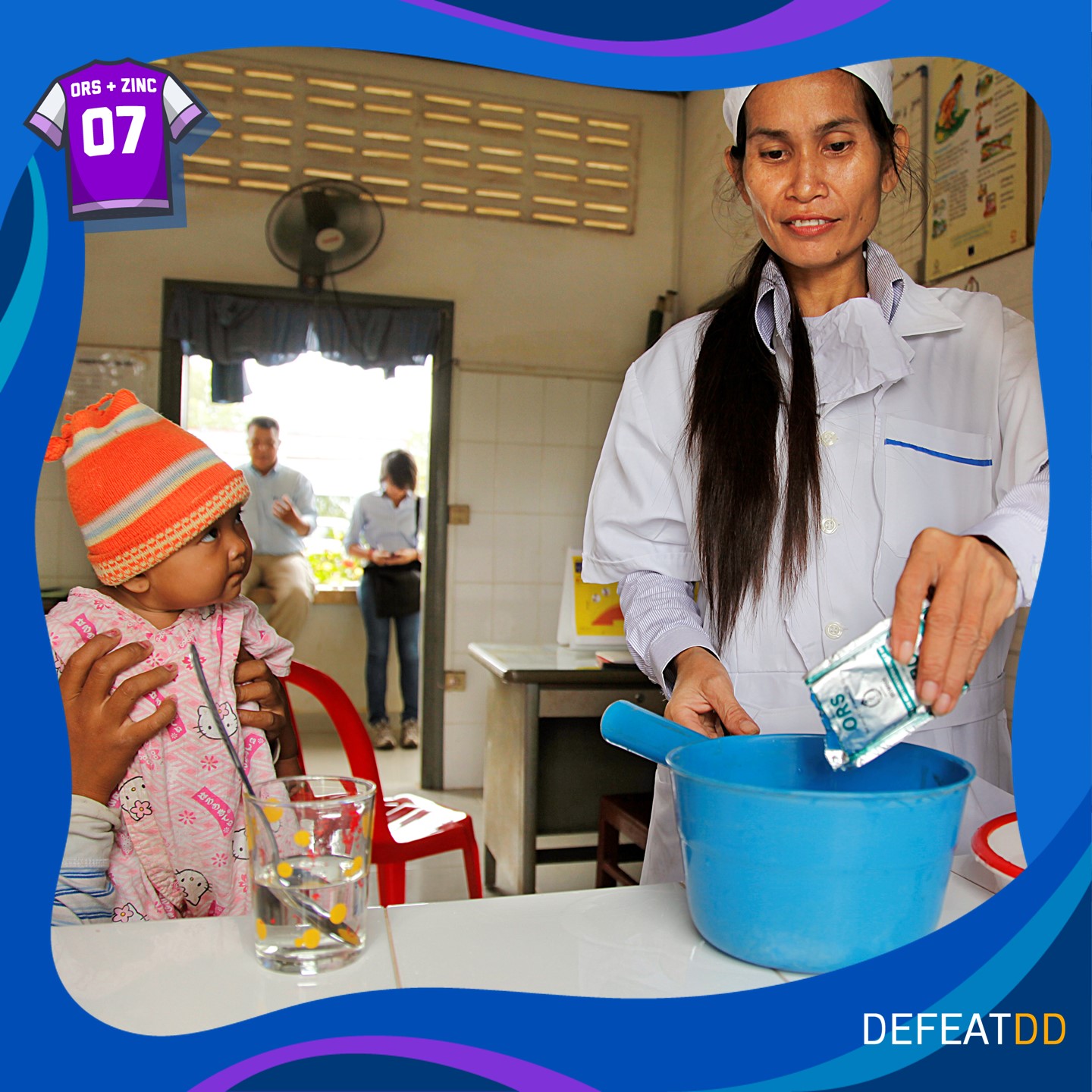
You won’t find it in the sports pages, but the World Health Organization (WHO) just made a game-changing decision in the field of diarrheal disease by adding co-packaged oral rehydration solution (ORS) and zinc to its Model List of Essential Medicines (EML), including the list for children’s medicines, too (EMLc).
 The co-pack’s advancement to this list – think of it like a starting line-up of Most Valuable Players for child health – guide national health budgets, procurement and supply, and healthcare provider training practices to make certain the most important tools are available.
The co-pack’s advancement to this list – think of it like a starting line-up of Most Valuable Players for child health – guide national health budgets, procurement and supply, and healthcare provider training practices to make certain the most important tools are available.
Countries look to WHO to set global standards for national policies. While WHO and UNICEF have long recommended both ORS and zinc as the gold standard for managing childhood diarrhea, adding these co-packaged medicines to the EMLc signals national essential medicine lists to follow suit. In the early adopter countries, ORS and zinc is already making an impact.
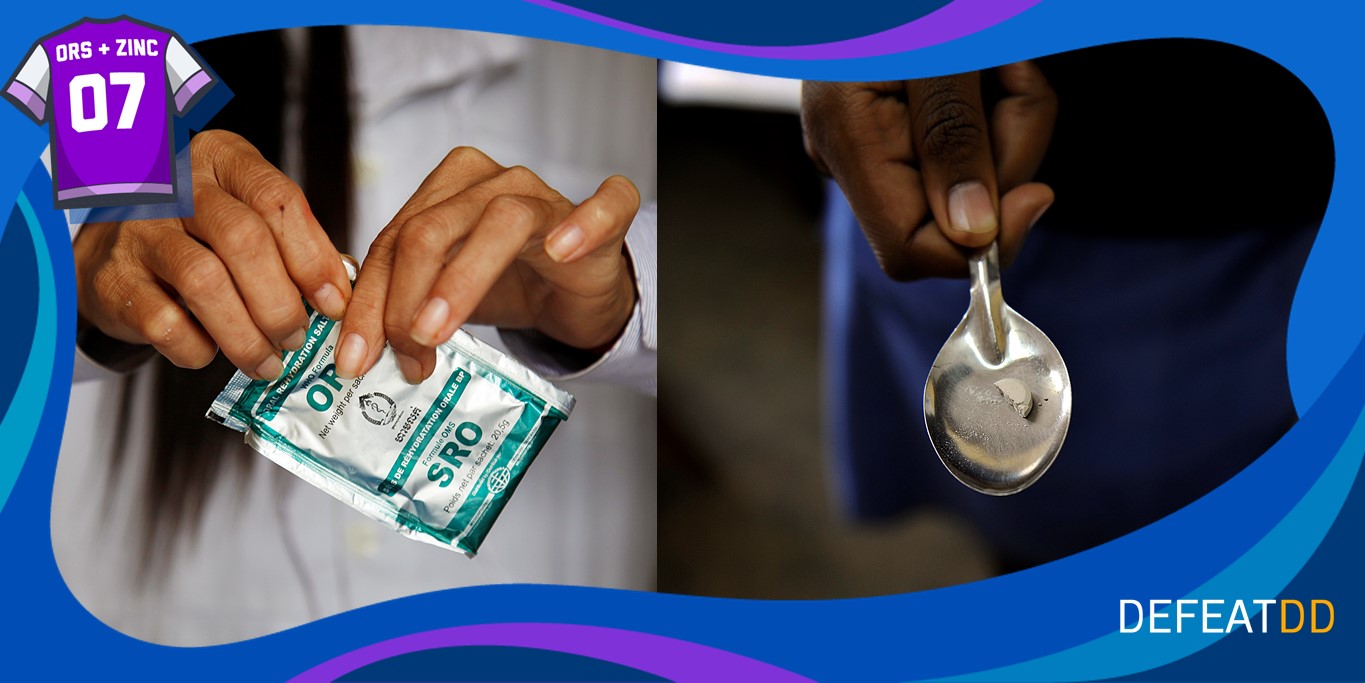
To call oral rehydration solution a game-changer might be an understatement. In fact, The Lancet called this humble tool – a simple mixture of sugar, water, and salt – potentially one of the most important medical advances of twentieth century.
When children die from diarrhea, they die from dehydration. ORS is so effective because it helps children absorb much-needed fluids until the illness is over.
Only about a third of the children who need it get ORS. The number of children who get the second part of the treatment regimen – a 14-day course of zinc supplements – is even lower. Zinc (shown in the right-hand portion of the above photo) helps children recover faster from diarrhea by replenishing depleted nutrients and fortifying the immune system. It’s been proven to prevent future episodes of diarrhea, too.
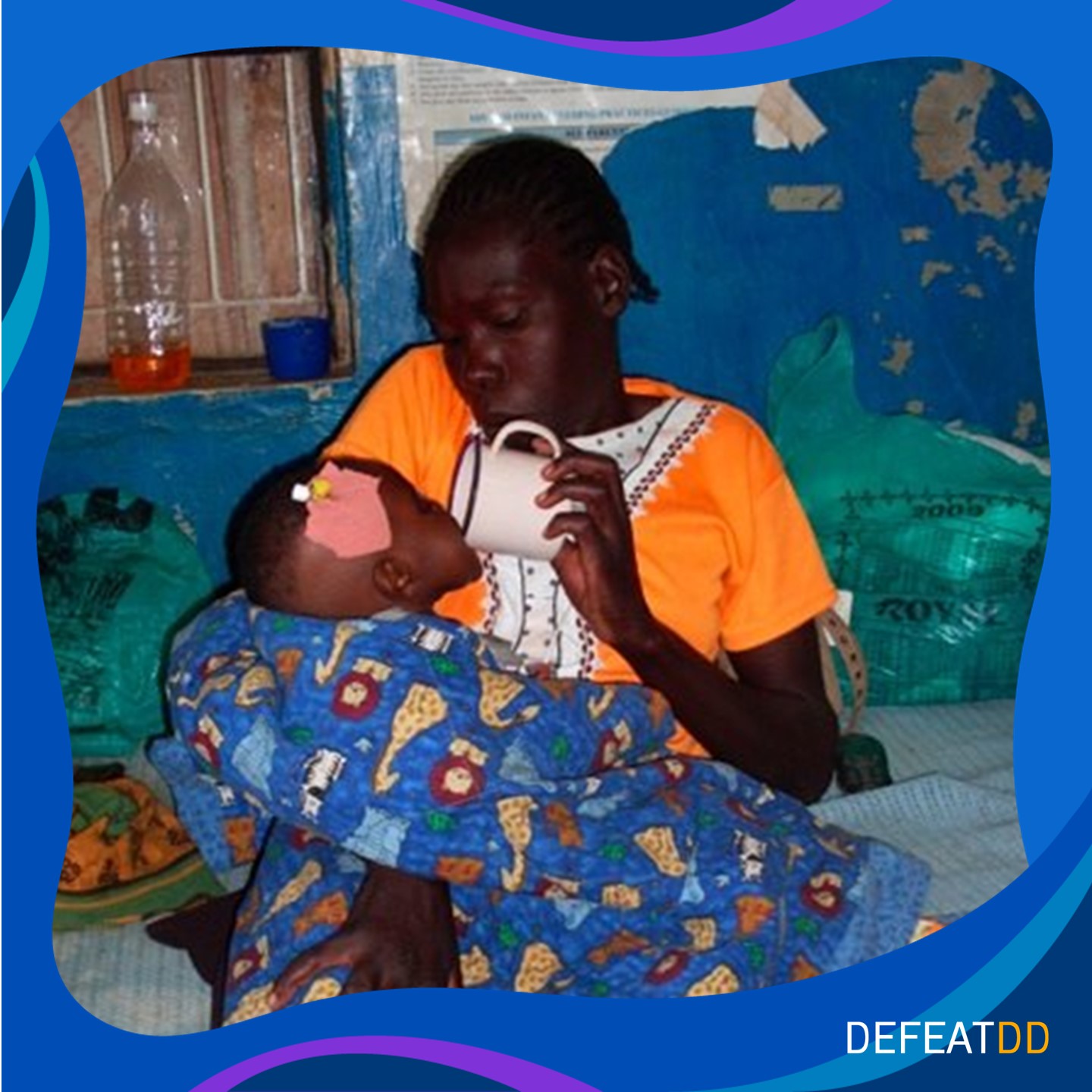
While diarrhea is simple to treat, access to treatment is not always so simple.
This mother in Kenya, above, weighed a complicated calculus of variables before deciding whether to make a journey to the hospital: the severity of her daughter’s illness, transportation costs, medical costs, and time spent away from the household and other income-earning activities.
Too dehydrated even for ORS, her daughter needed an IV infusion for days in the hospital. Here, out of severe danger but still weak, she was ready for ORS, and eventually zinc.
Visitors to this clinic are lucky; hospitals don’t always have zinc supplies in stock. Today, Kenya is one of a handful of countries to have co-packaged ORS and zinc in their national essential medicine list ahead of the WHO recommendation. This means that local pharmacies and clinics will be more likely to have both medicines available.
In Kenya, the co-pack has not only improved access, but importantly, also use and awareness about the importance of zinc. “Since the inclusion of the ORS/zinc co-pack on the essential medicine list three years ago, uptake of zinc alongside ORS dramatically increased,” says Anthony Okoth, Country Director of PATH’s office in Kenya.
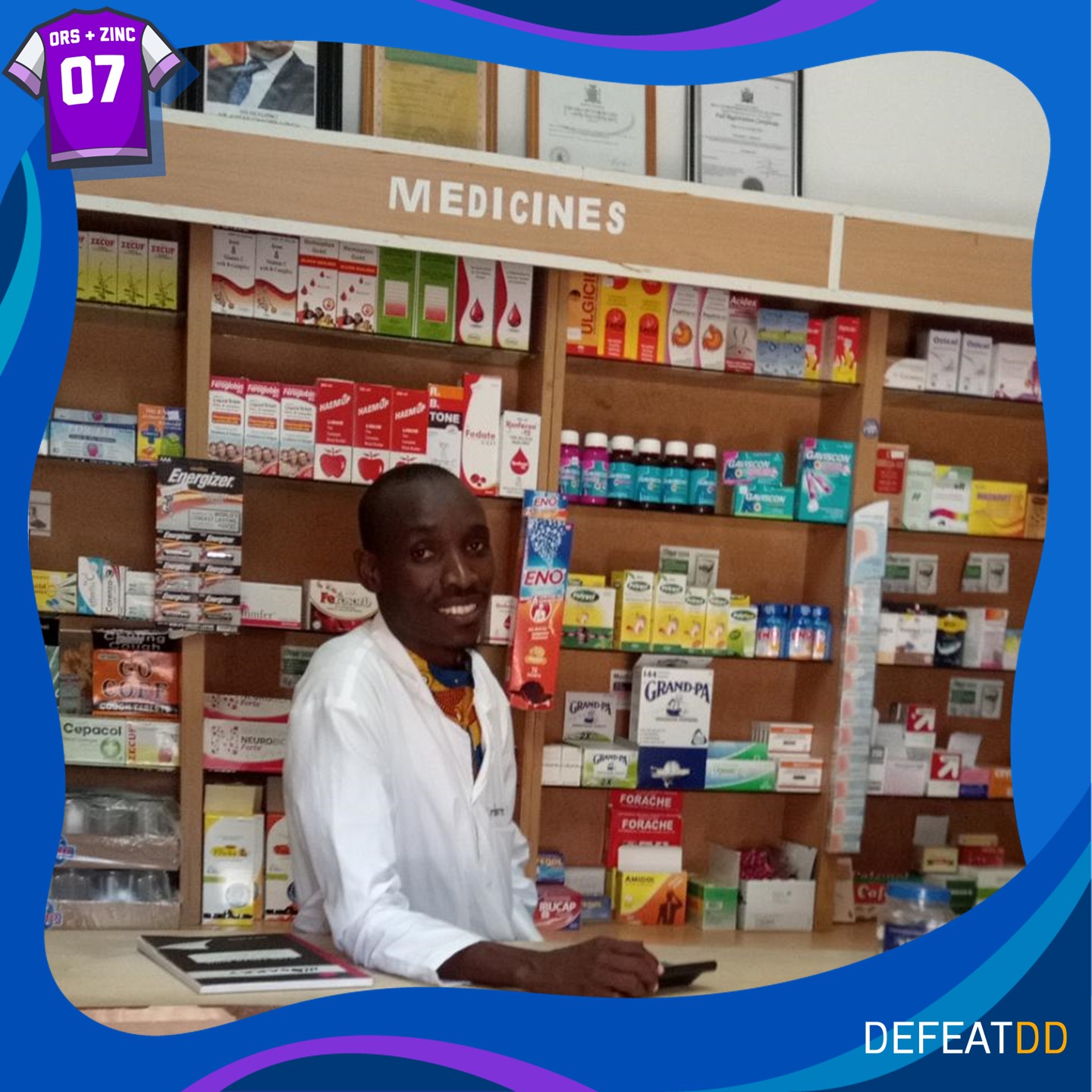
John Phiri, pictured above, is a pharmacy owner in Zambia. He understands how tight money is for his customers. He told us about a time a mother asked for ORS for her child: “When I suggested she get both ORS and zinc, she refused because she needed to ration the money she had. She had to get food for the baby and also the ORS.” It was important for him to explain that zinc is just as key as ORS to treat diarrhea, and the mother was eventually convinced that she wasn’t being swindled into buying unnecessary medicine. It’s the duty of a pharmacists, he says, to educate his customers on the importance of ORS + zinc to treat diarrhea.
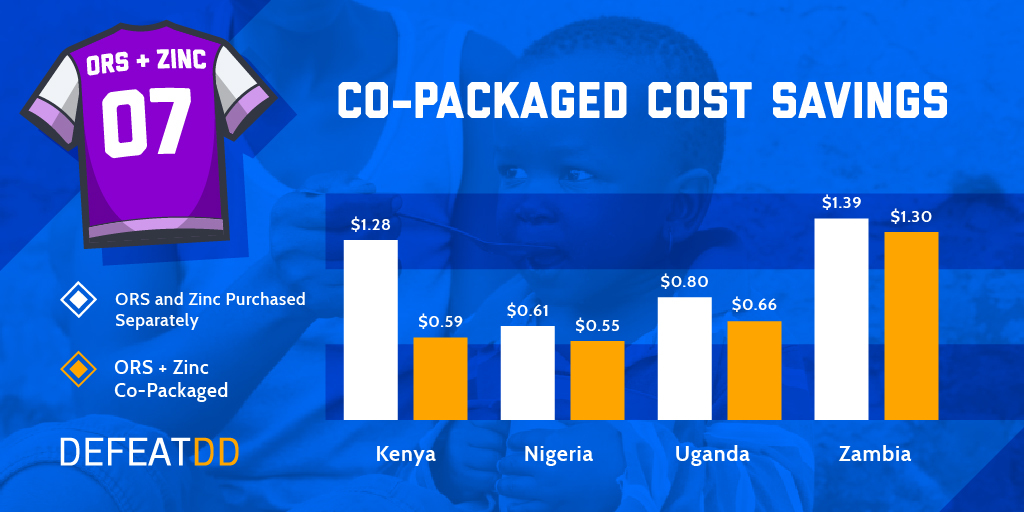
The co-pack provides an educational opportunity helpful for pharmacists like John, and it is a cost-savings opportunity, too. Like Kenya, Zambia is another early adopter of the co-pack listing. A study from one district in Zambia shows that within the year after the co-pack became available, the number of diarrhea cases treated with both medicines skyrocketed from less than half to 87%: a testament to the co-pack’s ability to increase access, awareness, affordability, and uptake.
Co-packaged ORS and zinc is a powerful way for countries to fully realize the long-touted healing benefits of these two crucial medicines for diarrhea. Now formalized as WHO’s global normative guidance, it should be reflected in national policies, guidelines, and practices – ultimately helping defeat diarrhea and save lives.


